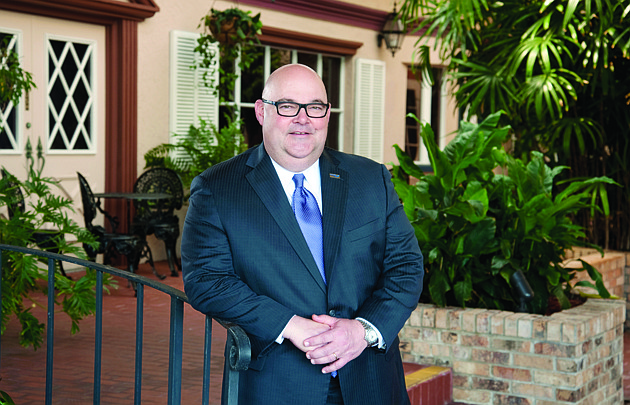- November 24, 2024
-
-
Loading

Loading

Many in the nationwide network of SCORE Association volunteers, more than 12,000 retired business leaders, like to boast about the long history of companies they helped start and jobs they helped create.
That success, including 20,000 new businesses counseled annually since 1964, doesn't only stem from helping would-be entrepreneurs with what to do. The group's volunteers, says CEO W. Kenneth Yancey, also excels at helping clients with what not to do.
That could mean advising someone to hold out for better financing terms. It could also mean talking a client out of opening a restaurant and into opening something with a better success rate. “Everybody who has access to the cash register,” in the restaurant business, quips Yancey, “is a partner.”
Yancey, who frequently speaks nationwide on small business issues like that, has run the prominent Herndon, Va.-based nonprofit association since 1993. A onetime banker, Yancey was the executive director for the Dallas-based National Business Association before he joined SCORE. Yancey has testified before Congress on small-business issues, made dozens of national TV and radio appearances and is SCORE's chief liaison with the U.S. Small Business Administration.
Yancey recently spoke in Sarasota at the Manastoa SCORE chapter annual awards luncheon. Yancey spoke with the Business Observer prior to his speech. Here's an edited transcript of the conversation:
Has the national small-business community regained some enthusiasm it lost after President Obama's “You didn't build that” comments in July?
I think there's a level of optimism that's just inherent in the entrepreneur when they think about their business. When you start asking questions about regulation and taxes and health care, and Congress in general, and the federal government in general, I think there is concern. It's all based on the fact that there's uncertainty about what could happen. We see a lot of concern and negative feelings, but on the whole I'm optimistic about small-business issues.
Uncertainty is a word local small-business owners use a lot, both before and after the 2012 presidential election. When will the uncertainty fade away?
With all that's going on there is a reasonable amount of uncertainty in the market for any small-business owner, whether it's health care or sequestration or economic factors. The great thing about entrepreneurs is they are so resilient. They have been taking on challenges like this ever since they started their business. Many of them are finding ways to start and grow despite what's going on. Many of them are figuring out ways to take advantage of the uncertainty and the challenges that are there.
What are some examples of taking advantage of the uncertainty?
A group got together and figured out crowdfunding. There's a new opportunity. There is also peer-to-peer lending. These people are solving problems and growing and contributing to the economy.
How are small businesses and startups doing in terms of access to capital, which is often considered a major obstacle to early success?
People who come to us are often looking to start their business or to grow their business, and in those environments it does require capital. It could come in traditional bank loans. Friends and family is a huge opportunity. While we don't advocate it, a lot of businesses start and grow by using credit cards. It's not the safest way, but those resilient, tough small-business owners are getting it done.
Past capital issues, what do SCORE counselors spend time on with small business owners?
We see a lot of people today who what they really want for their business is more customers. They would love to hire more people and they would love to grow, but what that takes is revenue. So we spend a lot of time working with individuals and companies on sales and marketing and how to attract that next client. Also, how to grow your share of wallet with an existing client is really important. If you haven't already looked at your current clientele for new business, then that's the easiest place to go, and were going to send you there and suggest ideas on how to do it.
Why should someone start a new business today, given all of the uncertainty and obstacles?
It obviously depends on the business. In challenging economic times, there are some businesses that do extremely well, like discount-type businesses or businesses that are not typically high-end. You look at history and some of the most admired and largest companies in the world were started in down economic times, Microsoft being one.